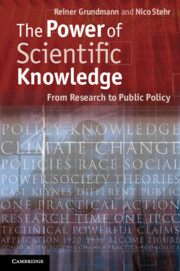2 - The savior of capitalism
The power of economic discourse
Published online by Cambridge University Press: 05 November 2012
Summary
Economics is a science of thinking in terms of models joined to the art of choosing models which are relevant to the real world.
John M. Keynes (1938: 296)The aim of this chapter is to trace the impact of Keynesian ideas on economic policies. We are not interested merely in making the case that knowledge – or even more generally, ideas – plays an important role in the political economy of the day. Although the role of ideas in politics and policy is at times considered less important than so-called structural factors, we will pay attention to the linkage between knowledge and structure. Knowledge is an enabling feature of action, and structure a constraining attribute of enacting knowledge as a capacity of action.
It will be our contention that economic ideas that constitute enabling knowledge for policy purposes have to focus on those features of political, social, and economic realities that are subject to the control of relevant bodies of governance, and not subject to “external” influences beyond their control. At times, influence over external actions that are not subject to the control of a particular state may have been relinquished voluntarily, as in the case of supranational organizations such as the European Union; or such actions may result from developments that limit the sovereignty of national institutions from the beginning, because these influential transformations are beyond their control (cf. Dahl 1994). Whenever internal economic policies are affected by developments outside the control of a country, it should be evident that knowledge that fails to take such features on board will not be enabling policy.
- Type
- Chapter
- Information
- The Power of Scientific KnowledgeFrom Research to Public Policy, pp. 22 - 64Publisher: Cambridge University PressPrint publication year: 2012



